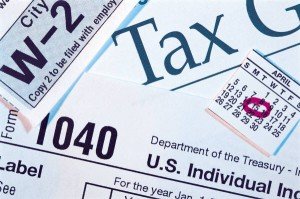
Bankruptcy and Taxes: Common Misconceptions
Many people believe that tax debt cannot be discharged under bankruptcy, but this is not true. If you meet the test for tax debt under the bankrutpcy code, you may be able to discharge tax debts with a bankruptcy filing. However, the rules for this type of discharge are very stringent, so it is important to talk with a professional before making any decisions about trying to discharge taxes through a bankruptcy. Oswalt Law Group in Phoenix can help you answer questions about your debts and how they may be affected by bankruptcy. When you turn to Oswalt Law Group for answers, you will find that their attorneys work hard to ensure that you understand your rights and obligations under bankruptcy law and help you discharge all possible debts so that you can truly get a fresh financial start.
The Five Tests for Discharging Tax Debt
The IRS and the United States Bankruptcy Code impose five tests on debtors to determine if income tax can be discharged under a bankruptcy. The debtor must meet all five of these tests in order to successfully discharge this debt. These five tests include:
- The tax return filing due date was at least three years prior to the date of filing the bankruptcy. In other words, if the tax return was due April 15, 2011, the debtor can file to discharge that debt no earlier than April 15, 2014. For corporations, the tax return due date is usually March 15.
- The tax return was actually filed at least two years ago. While an individual may have requested an extension on the tax return due date, the actual return can have been filed no earlier than two years prior to the bankruptcy.
- The tax assessment is 240 days old or more. If debtors have received a notice from the IRS or other taxation agencies that taxes are due, the assessment must have been received at least 240 days prior to the filing of the bankruptcy.
- The tax return was not fraudulent. If the debtor attempted to file a fraudulent return, the normal protections offered by bankruptcy do not apply.
- The taxpayer has not been convicted of income tax evasion. If the debtor has a conviction for income tax evasion, he or she may not take advantage of the protections offered by the bankruptcy code.
For more information on discharging your taxes under bankruptcy, contact the Oswalt Law Group.
